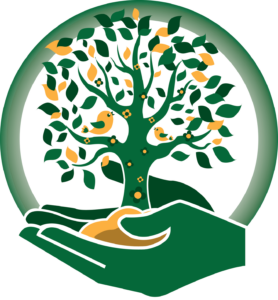As a Church school, St Lucia’s is a calm and caring place to be.
Our whole school community of children, parents, staff, governors, the church and local area contributed to create our vision for the education and learning experiences we aim to provide.
Parable of the Mustard Seed
Matthew 13:31-21
‘Though it is the smallest of seeds, when it grows, it is the largest of the garden plants and becomes a tree.’ 
The parable teaches us that we all have the potential to grow and flourish.
From the smallest of seeds grows the greatest of trees!
Our Christian values seek to underpin the belief that everyone in our school community should be valued and treated with respect. This helps children to grow to become the best they can be as we prepare them on their life-long learning journey.
St Lucia’s has designed its curriculum to fit with our school’s vision and values as well as the context and locality of the school. We aim to provide a wide range of learning experiences through various teaching styles called Pedagogy. We feel it is important for children to be provided with a balance of both teacher-led and enquiry based activities which meet the needs of the cohort learner. This is called a Centrist approach.
To achieve this, we include an appropriate balance of:
Traditional approach
This can include whole class or year group teaching, rote learning, modelling and demonstration with an emphasis on knowledge. Sometimes subjects may be taught discretely. Examples of this style of learning can be seen in children’s workbooks, quizzes and sometimes through knowledge organisers.
and
Progressive approach
This includes a child-centred enquiry approach where learners play an active role in accessing the curriculum through hands on experiences within a supportive learning environment. Examples of this style of learning can be seen through individual or group outcomes which are delivered through a topic based approach or project work.
Key Drivers
To achieve our vision and values, we have identified three key drivers through our curriculum which will prepare children through both familiar experiences and those which are different as part of their life-long learning journey.
Personal Journeys
Identifying talents and skills, Sport and Leisure, People Who Help Us
Patience, kindness, trust, courage, perseverance, self-awareness
Natural World
This includes Farming, Our Local Area and Travel, Source to Sea, The Seaside, What a Wonderful Life, Ancient Egypt, Romans, Ancient Greece and the Stone Age.
Respect for the environment, respect for others, patience, perseverance and courage.
Diversity
This includes City and Island Life, St Lucia and the Caribbean, Changes and Personal Journeys, What a Wonderful World, Sport and Leisure (Olympics)
Respect for others, the environment, other cultures, self-awareness.
Curriculum Map for Vision & Values